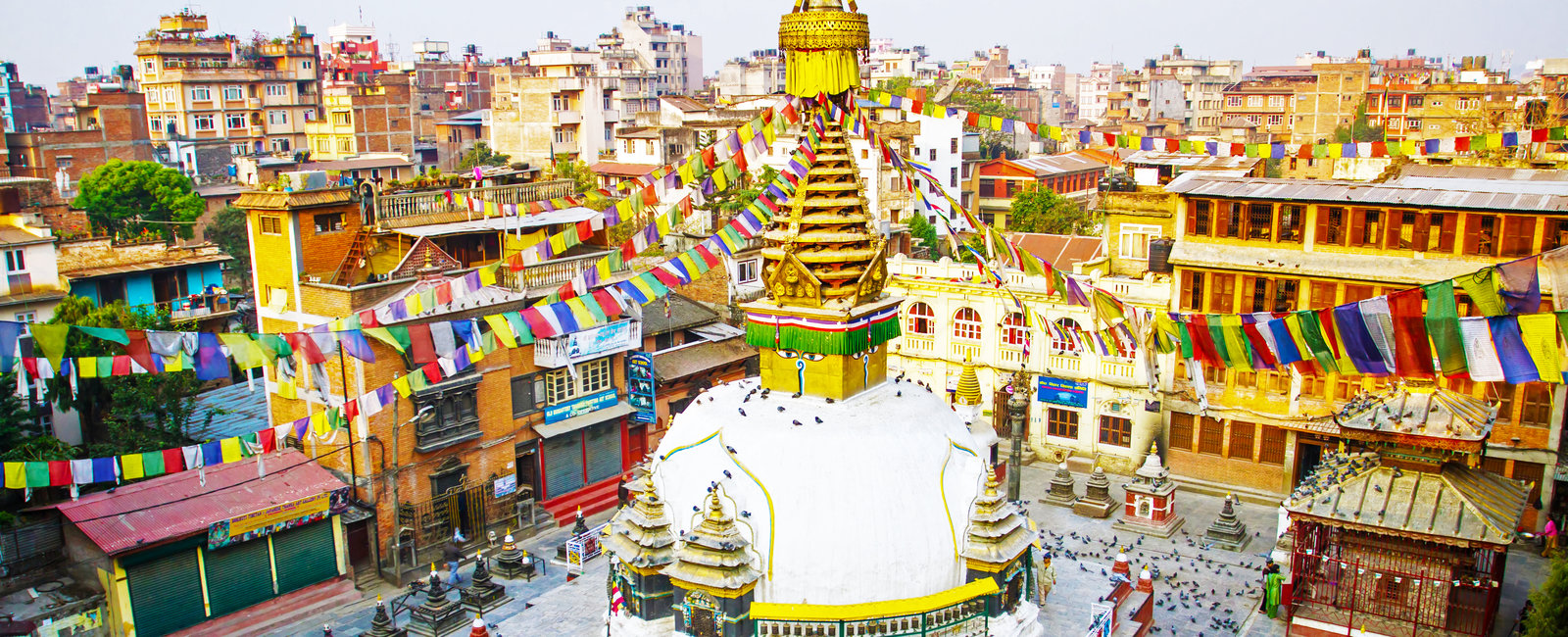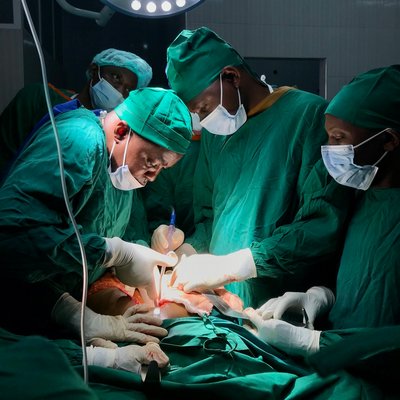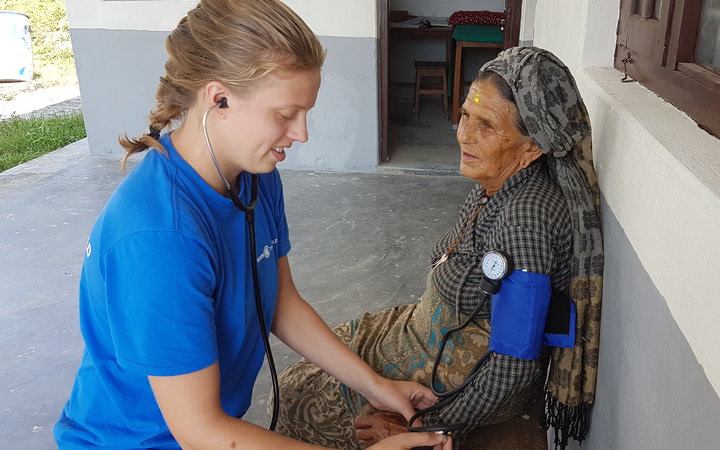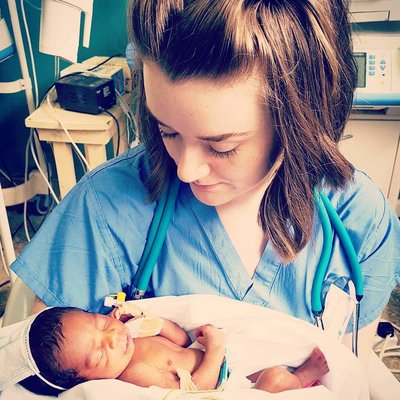Navin spent six weeks in Kathmandu, Nepal, in 2016. He is now a Registrar in Emergency Medicine at Leicester Royal Infirmary. We caught up with Navin in early 2023 to discuss his overseas medical elective.
When did you get to Nepal for your medical elective?
I went to Nepal in 2016 — weirdly, it feels like yesterday - or maybe I wish it felt like yesterday. It was such a great experience; it's unreal to think it was five years ago.
I often think about my six weeks in Nepal. It was such a good experience that words cannot do it justice.
I went a year after the 2015 Nepali earthquakes. You could still see the country was very much in recovery mode. There were still so many damaged buildings. Plus, they were going through a fuel embargo with India at the time, so the country was struggling with a lack of fuel - it was an exciting time to be in Nepal. The people did not seem phased — they were lovely and simply getting on with their lives; the country was incredible.
What made you choose the University of Leicester?
Before attending medical school, I studied Biomedical Science at Newcastle University. The year I applied to medical school, there were a record number of applications because, the following year, university fees were going to increase. I was delighted when I got my offer from Leicester University. I was a graduate entry under the undergraduate scheme, so competition was high.
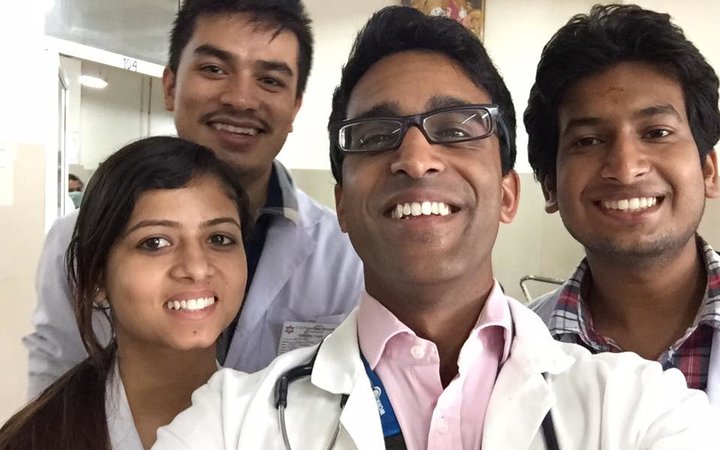
Why did you want to study medicine?
So many reasons. It is a great career; you get to work with the greatest minds from so many different professions, which I think is unique. It’s not just doctors you’re working with, but also incredible nurses, pharmacists, biomedical scientists, occupational therapists — the list goes on.
Also, the NHS is unique. It is a free-at-the-point-of-care healthcare system. It's not a system of privilege, so anyone can get the care they need, regardless of their background. There are no judgements in the NHS. I also wanted to apply my knowledge to improve people's quality of life. The non-technical side also encompasses teamwork, communication, and leadership, all-encompassing multiple roles within one system. It’s something else.
Cast your mind back. What were the highlights from your time at the University of Leicester?
I loved my time at the University of Leicester. It was very open-minded for student innovation, so I created a widened participation course to help people from disadvantaged backgrounds get into healthcare. It was a collaborative course with the DeMontfort University School of Nursing. This was a huge achievement for me. It still runs today, and I still have a lot of input into it.
I got to play sports, which is a massive passion of mine. I played cricket when I was at Newcastle University, so when I joined Leicester, I played for the medics cricket team. We went on to win the National Championship two years in a row. You get to play against people in different year groups and those you might work with in the future and travel around the country.
Leicester also puts students on placement very early, which is great. You get to meet the people you’ll work with, who might one day be your seniors. I found this incredibly useful. The university was also very supportive. I got to know the faculty very well, which was a highlight.
The head of the Medical School had an open-door policy and was open to feedback. Thinking back, this was a highlight. It was nice to make these connections so early on.
How did your overseas placement fit in with your degree?
We had to do our elective in our final year and after our final exams. I choose to do my full elective overseas.
I had initially tried to organise this independently with a group of friends. We had been speaking with a hospital in Vietnam. Trying to organise it privately was such a headache. It was constant back and forth and fell through at the very last minute. We had sorted our insurance and places to stay and were just about to book our flights when the hospital decided (at the last minute) they would not accept us. The communication was so rubbish that we all decided to go our separate ways, and then I came across Work the World.
One of the great things about Work the World was they did everything for us. It was so easy. It was just a case of book, pay, and then Work the World will everything. They took away all the stress. Once booked, I also spoke to a friend who was interested in coming away. She decided to do half her elective in England, then flew out to meet me, and did the rest of her elective in Nepal.
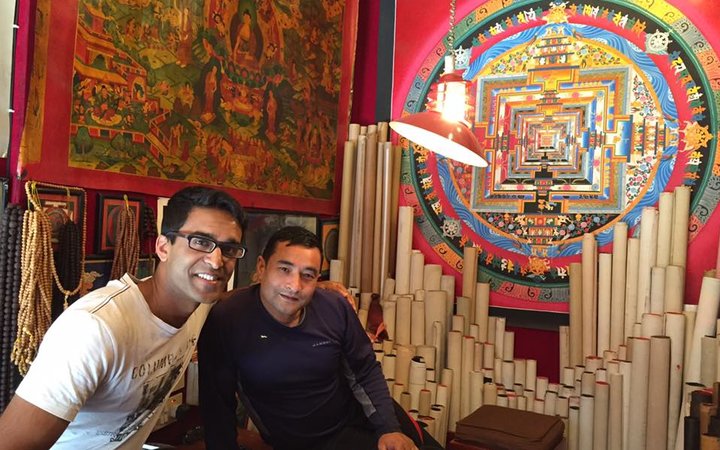
How was your medical elective in Nepal?
As soon as I arrived in Kathmandu, the team picked me up. We then promptly fell asleep once we arrived at the Work the World house, after a friendly hello and welcome meal, as I’d arrived quite late in the day.
Then, the next day was my city and hospital orientation, which was fantastic. I was taken out, had some traditional food, and was shown places in the city I’d likely return to. The information I got covered everything and made things familiar when I went out alone in the following days.
Before starting my placement in Kathmandu’s hospital, I was pretty nervous. I didn’t know what it would be like. The experience was totally different from going to a hospital in England that I hadn’t worked in before, as ,I had no prior experience with the healthcare system in Nepal.
I soon discovered how nice the staff were, meeting the head of the department right away. He asked me what I wanted to achieve and suggested many ideas I hadn’t considered for my placement.
I was given regular opportunities to enhance my practical skills (obviously under supervision), which was exciting. I made an effort to get stuck immediately, and I was very proactive, ensuring I was asking questions and getting the most out of my time. One thing that helped was that one of the consultants had trained in England, so he knew what information would be particularly helpful to me.
During my first few weeks in Nepal, I was slightly on edge while waiting for my final results. I got my results when I was out there, and thankfully, I passed. A huge relief!
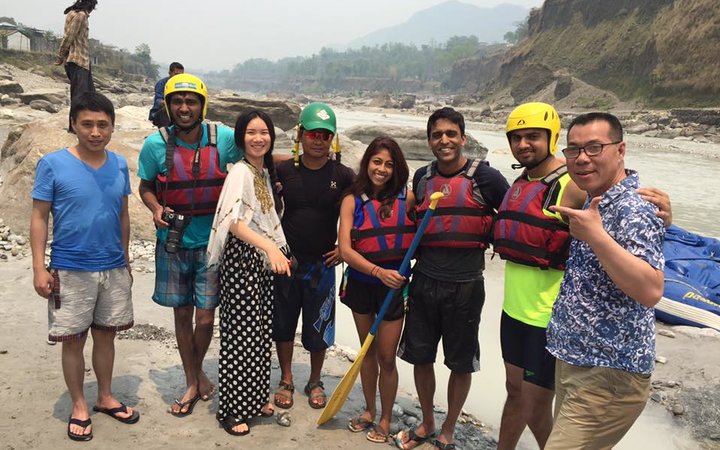
What departments did you spend your time in?
I was in A&E for my six-week placement and saw many things I wouldn’t have done in the UK.
One particular case was a severe rhino attack on a child who suffered multiple injuries. It was incredibly sad to see. The family had travelled from the countryside — it took them 24 hours to get to the hospital. Because of this, the wounds were completely infected. Again, you didn’t see this sort of thing in England. Everyone in A&E tried their utmost to help this child.
In terms of practical experience, I got to brush up on my cannulation skills. Cannulation is so simple, but when the family can only afford one cannula, there’s no room for error. If you miss the cannula in England, you can go straight to the store room and get another one. If you miss it in Nepal, you must charge the family for another one, which families often can’t afford. Learning how to cannulate difficult people in high-pressure environments is a skill I’ve been able to take back home.
I also helped to insert chest drains and learnt to read the tell-tale signs of certain ailments. Because you don’t have the investigative technology available, much goes back to these very valuable basics.
What did you do when you were not on placement?
On weekends, I did as much travelling as I could! The team was so helpful with all this — there’s a noticeboard in the Work the World house with ideas and details for extra travel.
I decided to go to the smaller city of Pokhara one weekend, which I would strongly recommend.
Pokhara was so different from Kathmandu and well worth visiting for the contrast. Kathmandu is a bustling Asian city with heavy traffic, winding lanes, hidden temples, and craft markets, whereas the pace in Pokhara is different. It’s green, mountainous and peaceful. You’ve also got all the extreme sports there, so I went paragliding and white water rafting! It was incredible.
I also went on a weekend hike in a neighbouring village near Kathmandu. The weather and scenery were incredible; I’d recommend going for at least one hike. I also went on a jungle safari, where I saw elephants, and went to a local village to see how they made their food.
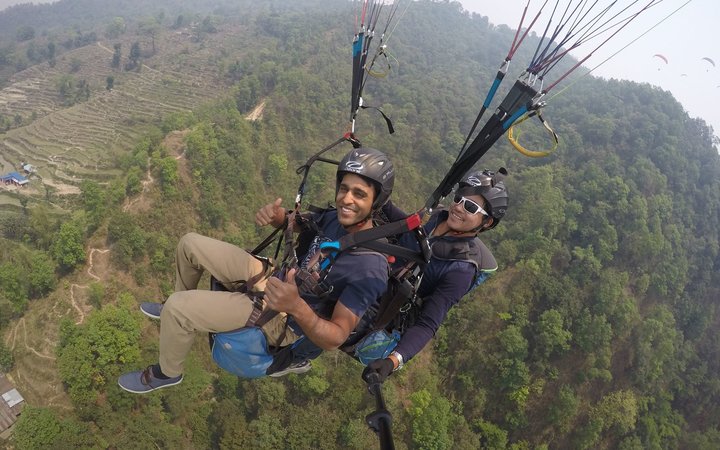
How was your time living in the Work the World house?
Life at the Work the World house was incredible. The food was just so good. When I got there, I was mentally preparing to lose weight, but the chef told me that most people put it on instead. I didn’t believe her at the time but soon did.
There’s also the weekly BBQ night every Wednesday – a great time to be social. The house was also well situated, within walking distance from the hospital, very easy to find, and had many balconies where we often enjoyed a few drinks and incredible views.
I’ll admit I’m probably a bit biased, but I genuinely do not believe that any of the other programmes are anywhere near as good as Kathmandu! The team goes above and beyond for every student.
When I was in Kathmandu, I enjoyed exploring the city. You'll never be bored with so many heritage sites and religious monuments. As a Buddhist, I found that there was an incredible amount of cultural history to explore. This was very enriching for me. The scenery is incredible.
It still ticks all the boxes even if you’re not going for the country and are there just for the placement. It’s a struggling health system, it’s got doctors that are probably better than the ones you’ve got in England at times, and who will work to the same level with fewer resources. There’s just so much you can learn and take home.
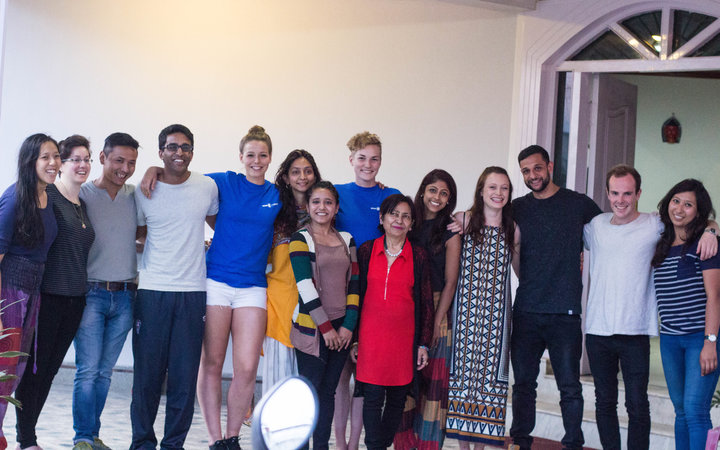
So, we’re five years on. Where are you in your career now?
After graduating, I worked in Leicester Hospital for Foundation Years 1 and 2. After this, I got a training post in emergency medicine and did my first two years at Northampton General Hospital. That was 6 months in emergency medicine, 6 months in anaesthetics, and 6 months in ITU. I was supposed to do 6 months in acute medicine but ended up getting redeployed to ITU.
I am now a Registrar of Emergency Medicine at Leicester Royal Infirmary. My technical title is Academic Clinical Fellow in Medical Education in Emergency Medicine, so I am a nationally appointed research fellow. I spend 25% of my time at the university and the rest of my time in the hospital.
How do you reflect on your time in Nepal?
It was one of my most memorable experiences abroad. It was a great mix of a medical placement and a holiday.
As I was a 5th-year medic, I was able to get more hands-on than others might have. I was doing things that benefited my practice when I started as a doctor; I gained skills that I probably wouldn’t have acquired had I done an elective in England.
Seeing how healthcare was practised in a less developed country was interesting. And it was heartwarming to see how they came together to deliver the best care possible.
All in all, my medical elective in Nepal was incredible. I reflect on it regularly and constantly tell medical students at Leicester University about it! I have nothing but incredible things to say about my time there. Nepal has stolen a piece of my heart.
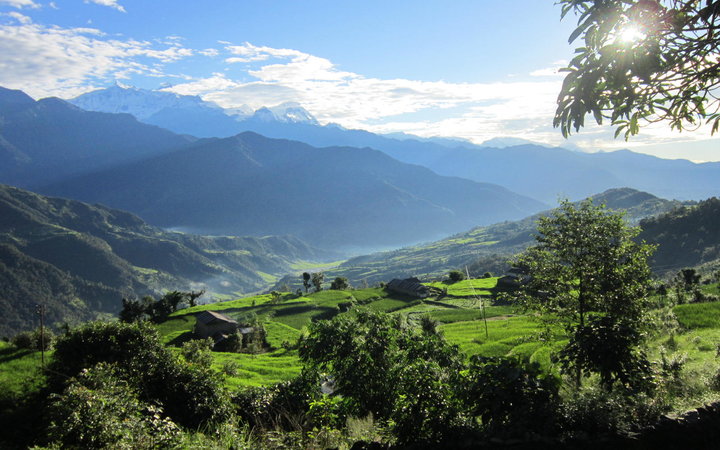
Discover more about our Electives in Asia — you'll find a range of unique destinations that offer eye-opening clinical experiences and adventures.
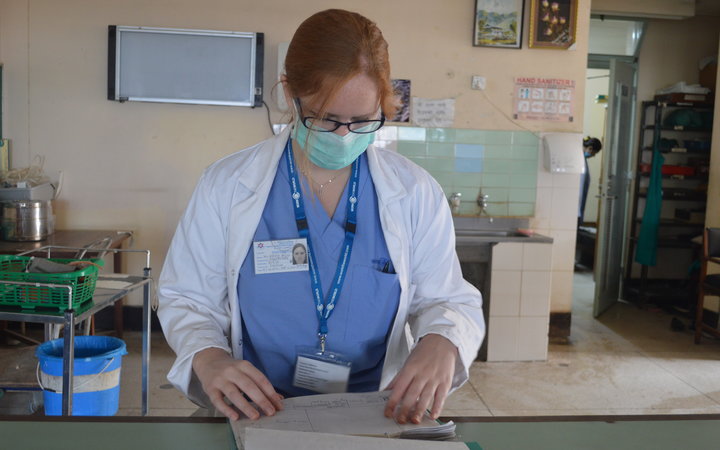
Next steps
Choose a Destination
Start dreaming up your own once-in-a-lifetime overseas medical placement experience today.
Choose a destination using the button below to get started.
Start dreaming up your own once-in-a-lifetime overseas medical placement experience today.
Choose a destination using the button below to get started.
